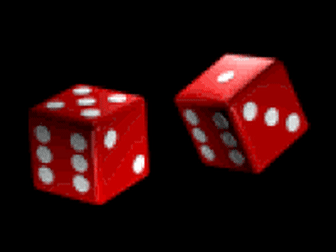

![]()

![]()
"There are no uncaused effects." Thus it is very general principle in physics. Probability and statistics are still valid of course--they merely tell us how things happen, but we learn nothing from statistics about the causes which lead to these events. In science "causality" has always been a fundamental notion.
It is not unusual to hear people suggest that time plus chance will accomplish the evolution of simple organisms into more complex entities. There is a logical error in such statements. There is no such thing as chance. That is, chance is not an entity which causes things to happen.
In the tossing a coin we say that we can count on the coin coming up heads half the time, and tails the other half of the time. The odds are 50/50. What we forget is that one flip of the coin involves a whole chain of causal factors. The weight of the coin, the shape of the coin, the upward impulse of the toss, air resistance, spin--the initial conditions--all interact on each toss of the coin. It is a mathematical convenience to say that the probability of heads is 50% and the probability of tails is 50%. The more tosses of the coin we make the closer the spectrum will come to a pure 0.5000 probability. But every individual toss of a coin is controlled by the laws of physics. There is no mechanism called "chance" determining the outcome of any toss of the coin.
Any effect we observe has been caused by a combination of preceding events. usually the chain of causality is so complex we can not track it very far backwards. But thus far physics and philosophy insist that every effect we observe in the universe was caused by some preceding action or actions. Nothing happens by accident.
In the '50s the hypothesis of causality in Quantum Mechanics was questioned by the famous physicist David Bohm (Causality and Chance in Modern Physics, U. of Pennsylvania Press, 1957). But at the present time mainstream physics holds that causality holds at the quantum level, although our ability to detect and map what causes what may completely elude us.
Following are a few brief notes on the subject of chance to help the ordinary person perceive that it is quite certain that we live not in an "accidental universe" but in a universe where everything that happens has been caused to happen by something else.

by Jeff Landauer and Joseph Rowlands
Causality is the Law of Identity applied over time. It is the identity of actions. An action requires an entity. It presupposes an entity. Without an entity, action is meaningless. There are no "floating" actions that aren't actions of an entity.
Action is a change in the identity of an entity. Every action has a particular nature. The action is determined by the entities involved. The change of the entities occurs based on the identities. A marble, when dropped, falls towards the ground. Its position (part of its identity) changes. This change, though, is dependent on the nature of the objects involved. It is dependent on the Earth and the Earth's gravity. It is dependent on the friction of the air.
A log that burns is also acting. Its identity is changing. In this case, its position stays the same, but its chemical structure is changing. It is changing into ash. It is releasing smoke into the air. The oxygen in the air is being combined with the carbon in the fire. Heat is being released. All of these changes are determined by the identity of the entities involved. As the entities change, so do their natures. With the altered identities, the actions change to match. This continual process of change is all determined by the initial identities.
Causality is the term used to describe this dependence of an action on the identities of the entities involved. The changes in the identities of the objects are a result of their identities interacting. This interaction, which is an action, is based on the previous natures of the objects involved. In short, for something to change (which is an effect), it needs to be acted on (caused) by a previous action. This previous action, or change, is an effect as well.
Every effect must have a cause. That cause, however, is an
effect of a previous cause. Causality is the law that states that
each cause has a specific effect, and that this effect is dependent
on the identities of the agents involved. (from http://www.importanceofphilosophy.com/Metaphysics_Causality.html,
by Jeff Landauer and Joseph Rowlands)
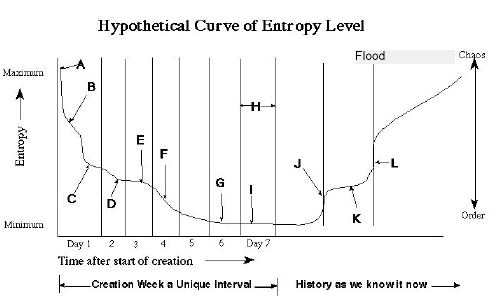
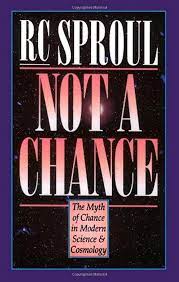
R.C. shows that the idea that the universe was formed by chance is illogical and scientifically impossible. Using the laws of logic, linguistic and scientific theories, and mathematical understandings, Dr. Sproul probes the undeniable reality of the cause-effect relationship.
"Not a Chance is R.C. Sproul at his best, which is very good. Reference to chance explains nothing, as he shows. But it is an essential factor in the struggle for atheism to appear rational in the face or the world where we live. He shows secularism to be what it now is: a desperate faith." - Dr. Dallas Willard, Department of Philosophy, University of Southern California.
The book argues from basic principles of logic. "There are no uncaused effects." This is a very general principle and directly applicable to physics. Probability and statistics are still valid of course--they merely tell us how things happen, but we learn nothing from statistics about the causes which lead to these events. In science "causality" has always been a fundamental notion in science.
"Chance" is an abstract concept. When you flip a coin, a whole host of factors are at work to determine which side of the coin lands upright. These factors on average will had to head 50% of the time and tails 50%. But no law (or force) of probability is at work causing anything to happen.
The evolutionary idea that "time plus chance" causes order to emerge from chaos is nonsense. "Chance" does not "cause" anything. Realizing that "chance" is not causing anything to happen is a huge blow for many evolutionary arguments.
This is a good book to have on the shelf or to give to friends. It is one of RC's better books I think.
"Chance as a real force is a myth. It has no basis in reality and no place in scientific inquiry. For science and philosophy to continue to advance in knowledge, chance must be demythologized once and for all." (page 214)
Baker Academic; (January 1, 1999) ISBN: 080105852X
Editorial Reviews
Dallas Willard, Department of Philosophy University of
Southern California
Not a Chance is Sproul at his best, which is very good. Reference
to chance explains nothing, as he shows. But it is an essential
factor in the struggles of atheism to appear rational in the face
of the world where we live. He shows secularism to be what it
now is: a desperate faith
Ravi Zacharias, author of The Shattered Visage of Atheism
Sproul has given us a powerfully argued, landmark work, in what
has been an unremitting conflict between chance and agency. Here
science, philosophy, and theology meet
Book Description
As technology allows a better view of the universe, R. C. Sproul
asks an important question: Can chance be responsible for all
that is?
In a lively dialog with modern thinkers from Einstein and Hume to Niels Bohr and Carl Sagan, Not a Chance consults the laws of logic, linguistic and scientific theory, and mathematical understanding to probe the cause-effect relationship. Now in paperback, it is the only book-length critique of chance causation written by an evangelical. Sproul shows that the origin of the universe and humankind cannot be explained as a result of chance, and that chance can coexist neither with God nor with the natural sciences.
Readers interested in cultural apologetics and in the Bible
and science, and anyone seeking a rational defense of creation,
will be intrigued by this book. Twenty-five illustrations are
included to aid the readers understanding.
2. Another excellent book on this same subject (especially as
related to evolutionary theory is Not by Chance: Shattering
the Modern Theory of Evolution, by Lee M. Spetner. (Judaica
Press, 1996).
Book Description
Physicist Dr. Lee M. Spetner's new book has biologists and geneticists
across the country praising this book as one of the most serious
challenges to the modern theory of evolution. "Dr. Spetner
has an extraordinary ability to present complex mathematical,
statistical, and biological issues in a comprehensible manner."--Rabbi
Joseph Elias, The Jewish Observer "It is certainly the most
rational attack on evolution that I have ever read"--Professor
E. Simon, Department of Biology, Purdue University.
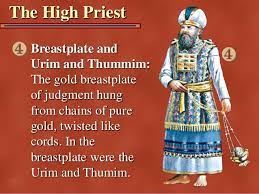
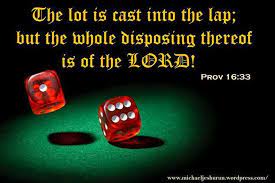
In the universe as we find it now, order can come out of chaos only by causal means. One must have a source of energy and a source of programming information in order to reverse the trend towards ruin and decay all around us. (The natural decay of all things with the passage of time is well-described by the Second Law of Thermodynamics). Werner Gitt's book, In the Beginning was Information, is highly recommended. (1997, Christliche Literatur-Verbreitung b. V. POB 100 01 35, D-33661, Bielefeld, Germany). See also The Mystery of Life's Origin, by Charles B. Thaxton, Walter L. Bradley and Roger L. Olsen http://www.ldolphin.org/mystery/
The most famous of all arguments for the existence of God are the "five ways" of Saint Thomas Aquinas. One of the five ways, the fifth, is the argument from design, which we looked at in the last essay. The other four are versions of the first-cause argument, which we explore here.
The argument is basically very simple, natural, intuitive, and commonsensical. We have to become complex and clever in order to doubt or dispute it. It is based on an instinct of mind that we all share: the instinct that says everything needs an explanation. Nothing just is without a reason why it is. Everything that is has some adequate or sufficient reason why it is.
Philosophers call this the Principle of Sufficient Reason. We use it every day, in common sense and in science as well as in philosophy and theology. If we saw a rabbit suddenly appear on an empty table, we would not blandly say, "Hi, rabbit. You came from nowhere, didn't you?" No, we would look for a cause, assuming there has to be one. Did the rabbit fall from the ceiling? Did a magician put it there when we weren't looking? If there seems to be no physical cause, we look for a psychological cause: perhaps someone hypnotized us. As a last resort, we look for a supernatural cause, a miracle. But there must be some cause. We never deny the Principle of Sufficient Reason itself. No one believes the Pop Theory: that things just pop into existence for no reason at all. Perhaps we will never find the cause, but there must be a cause for everything that comes into existence.
If there is no first cause, then the universe is like a great chain with many links; each link is held up by the link above it, but the whole chain is held up by nothing.
Now the whole universe is a vast, interlocking chain of things that come into existence. Each of these things must therefore have a cause. My parents caused me, my grandparents caused them, et cetera. But it is not that simple. I would not be here without billions of causes, from the Big Bang through the cooling of the galaxies and the evolution of the protein molecule to the marriages of my ancestors. The universe is a vast and complex chain of causes. But does the universe as a whole have a cause? Is there a first cause, an uncaused cause, a transcendent cause of the whole chain of causes? If not, then there is an infinite regress of causes, with no first link in the great cosmic chain. If so, then there is an eternal, necessary, independent, self-explanatory being with nothing above it, before it, or supporting it. It would have to explain itself as well as everything else, for if it needed something else as its explanation, its reason, its cause, then it would not be the first and uncaused cause. Such a being would have to be God, of course. If we can prove there is such a first cause, we will have proved there is a God.
Why must there be a first cause? Because if there isn't, then the whole universe is unexplained, and we have violated our Principle of Sufficient Reason for everything. If there is no first cause, each particular thing in the universe is explained in the short run, or proximately, by some other thing, but nothing is explained in the long run, or ultimately, and the universe as a whole is not explained. Everyone and everything says in turn, "Don't look to me for the final explanation. I'm just an instrument. Something else caused me." If that's all there is, then we have an endless passing of the buck. God is the one who says, "The buck stops here."
If there is no first cause, then the universe is like a great chain with many links; each link is held up by the link above it, but the whole chain is held up by nothing. If there is no first cause, then the universe is like a railroad train moving without an engine. Each car's motion is explained proximately by the motion of the car in front of it: the caboose moves because the boxcar pulls it, the boxcar moves because the cattle car pulls it, et cetera. But there is no engine to pull the first car and the whole train. That would be impossible, of course. But that is what the universe is like if there is no first cause: impossible.
Here is one more analogy. Suppose I tell you there is a book that explains everything you want explained. You want that book very much. You ask me whether I have it. I say no, I have to get it from my wife. Does she have it? No, she has to get it from a neighbor. Does he have it? No, he has to get it from his teacher, who has to get it. . . et cetera, etcetera, ad infinitum. No one actually has the book. In that case, you will never get it. However long or short the chain of book borrowers may be, you will get the book only if someone actually has it and does not have to borrow it. Well, existence is like that book. Existence is handed down the chain of causes, from cause to effect. If there is no first cause, no being who is eternal and self-sufficient, no being who has existence by his own nature and does not have to borrow it from someone else, then the gift of existence can never be passed down the chain to others, and no one will ever get it. But we did get it. We exist. We got the gift of existence from our causes, down the chain, and so did every actual being in the universe, from atoms to archangels. Therefore there must be a first cause of existence, a God.
If there is no independent being, then the whole chain of dependent beings is dependent on nothing and could not exist.
In more abstract philosophical language, the proof goes this way. Every being that exists either exists by itself, by its own essence or nature, or it does not exist by itself. If it exists by its own essence, then it exists necessarily and eternally, and explains itself. It cannot not exist, as a triangle cannot not have three sides. If, on the other hand, a being exists but not by its own essence, then it needs a cause, a reason outside itself for its existence. Because it does not explain itself, something else must explain it. Beings whose essence does not contain the reason for their existence, beings that need causes, are called contingent, or dependent, beings. A being whose essence is to exist is called a necessary being. The universe contains only contingent beings. God would be the only necessary being-if God existed. Does he? Does a necessary being exist? Here is the proof that it does. Dependent beings cannot cause themselves. They are dependent on their causes. If there is no independent being, then the whole chain of dependent beings is dependent on nothing and could not exist. But they do exist. Therefore there is an independent being.
Saint Thomas has four versions of this basic argument.
* First, he argues that the chain of movers must have a
first mover because nothing can move itself. (Moving here refers
to any kind of change, not just change of place.) If the whole
chain of moving things had no first mover, it could not now be
moving, as it is. If there were an infinite regress of movers
with no first mover, no motion could ever begin, and if it never
began, it could not go on and exist now. But it does go on, it
does exist now. Therefore it began, and therefore there is a first
mover.
* Second, he expands the proof from proving a cause of
motion to proving a cause of existence, or efficient cause. He
argues that if there were no first efficient cause, or cause of
the universe's coming into being, then there could be no second
causes because second causes (i.e., caused causes) are dependent
on (i.e., caused by) a first cause (i.e., an uncaused cause).
But there are second causes all around us. Therefore there must
be a first cause.
* Third, he argues that if there were no eternal, necessary,
and immortal being, if everything had a possibility of not being,
of ceasing to be, then eventually this possibility of ceasing
to be would be realized for everything. In other words, if everything
could die, then, given infinite time, everything would eventually
die. But in that case nothing could start up again. We would have
universal death, for a being that has ceased to exist cannot cause
itself or anything else to begin to exist again. And if there
is no God, then there must have been infinite time, the universe
must have been here always, with no beginning, no first cause.
But this universal death has not happened; things do exist! Therefore
there must be a necessary being that cannot not be, cannot possibly
cease to be. That is a description of God.
* Fourth, there must also be a first cause of perfection
or goodness or value. We rank things as more or less perfect or
good or valuable. Unless this ranking is false and meaningless,
unless souls don't really have any more perfection than slugs,
there must be a real standard of perfection to make such a hierarchy
possible, for a thing is ranked higher on the hierarchy of perfection
only insofar as it is closer to the standard, the ideal, the most
perfect. Unless there is a most-perfect being to be that real
standard of perfection, all our value judgments are meaningless
and impossible. Such a most-perfect being, or real ideal standard
of perfection, is another description of God.
There is a single common logical structure to all four proofs. Instead of proving God directly, they prove him indirectly, by refuting atheism. Either there is a first cause or not. The proofs look at "not" and refute it, leaving the only other possibility, that God is.
Each of the four ways makes the same point for four different kinds of cause: first, cause of motion; second, cause of a beginning to existence; third, cause of present existence; and fourth, cause of goodness or value. The common point is that if there were no first cause, there could be no second causes, and there are second causes (moved movers, caused causers, dependent and mortal beings, and less-than-wholly-perfect beings). Therefore there must be a first cause of motion, beginning, existence, and perfection.
How can anyone squirm out of this tight logic? Here are four
ways in which different philosophers try.
* First, many say the proofs don't prove God but only some vague
first cause or other. "God of Abraham, Isaac, and Jacob,
not the God of philosophers and scholars", cries Pascal,
who was a passionate Christian but did not believe you could logically
prove God's existence. It is true that the proofs do not prove
everything the Christian means by God, but they do prove a transcendent,
eternal, uncaused, immortal, self-existing, independent, all-perfect
being. That certainly sounds more like God than like Superman!
It's a pretty thick slice of God, at any rate-much too much for
any atheist to digest.
* Second, some philosophers, like Hume, say that the concept of
cause is ambiguous and not applicable beyond the physical universe
to God. How dare we use the same term for what clouds do to rain,
what parents do to children, what authors do to books, and what
God does to the universe? The answer is that the concept of cause
is analogical-that is, it differs somewhat but not completely
from one example to another. Human fatherhood is like divine
fatherhood, and physical causality is like divine causality. The
way an author conceives a book in his mind is not exactly the
same as the way a woman conceives a baby in her body either, but
we call both causes. (In fact, we also call both conceptions.)
The objection is right to point out that we do not fully understand
how God causes the universe, as we understand how parents cause
children or clouds cause rain. But the term remains meaningful.
A cause is the sine qua non for an effect: if no cause, no effect.
If no creator, no creation; if no God, no universe.
* Third, it is sometimes argued (e.g., by Bertrand Russell) that
there is a self-contradiction in the argument, for one of the
premises is that everything needs a cause, but the conclusion
is that there is something (God) which does not need a cause.
The child who asks "Who made God?" is really thinking
of this objection. The answer is very simple: the argument does
not use the premise that everything needs a cause. Everything
in motion needs a cause, everything dependent needs a cause, everything
imperfect needs a cause.
* Fourth, it is often asked why there can't be infinite regress,
with no first being. Infinite regress is perfectly acceptable
in mathematics: negative numbers go on to infinity just as positive
numbers do. So why can't time be like the number series, with
no highest number either negatively (no first in the past) or
positively (no last in the future)? The answer is that real beings
are not like numbers: they need causes, for the chain of real
beings moves in one direction only, from past to future, and the
future is caused by the past. Positive numbers are not caused
by negative numbers. There is, in fact, a parallel in the number
series for a first cause: the number one. If there were no first
positive integer, no unit one, there could be no subsequent addition
of units. Two is two ones, three is three ones, and soon. If there
were no first, there could be no second or third.
If this argument is getting too tricky, the thing to do is to return to what is sure and clear: the intuitive point we began with. Not everyone can understand all the abstract details of the first-cause argument, but anyone can understand its basic point: as C. S. Lewis put it, "I felt in my bones that this universe does not explain itself." (Posted at http://www.peterkreeft.com/topics/first-cause.htm. From Fundamentals of the Faith by Ignatius Press).
The following discussion illustrates the usefulness of probability calculations in science.
Evolutionists say that by chance certain mutations happened to help one sort of thing become a new or better sort of thing. Let's look at this thing called chance. Suppose you have a coin and you want 'heads' to come up when you toss the coin. You have a one out of two chance you will get heads. Suppose you have A, B, and C on some blocks, and you toss the blocks up and want them to come down in the order ABC. What are your chances? Well, you can get any of the following:
ABC ACB BAC BCA CAB CBA
All of a sudden, our chances of getting a right combination have gotten lots worse. It is now one in six. What about if we have four different things, and we want them to happen to come together in a particular way? If we have ABCD, here are our possibilities: ABCD, ABDC, ACBD, ACDB, ADBC, ADCB, BACD, BADC, BCAD, BCDA, BDAC, BDCA, CABD, CADB, CBAD, CBDA, CDAB, CDBA, DABC, DACB, DBAC, DBCA, DCAB, or DCBA. That is one in 24 chances, with only four different things. The way we figure it mathematically is to say "four times three times two times one." That means 'four factorialized,' and we write it like this: 4! (the exclamation mark means 'factorialized.') The chances of one arrangement of three things was 3!, or 3 x 2 x 1, which equals 6. And we had six different arrangements above. Suppose we had eight different things that we wanted in the right order. By chance. That would mean we would have one chance in 8! , or 8 x 7 x 6 x 5 x 4 x 3 x 2 x 1. Or one chance in 40,320.
A protein contains hundreds or thousands of molecules called amino acids. First of all, there are twenty amino acids that go into building your body. They have to be in the right order at the right time to make the right protein. And several hundred or thousand of them have to line up and connect the right way. Can this happen by chance? My hand calculator will not go past 14!. So the idea of trying to get just a hundred amino acids in the right order by chance borders on mathematically impossible. And in order for a cell to be able to do something new, it needs new information to obey, which has to come from new proteins. Some evolutionists say that the cell can make more of the proteins it already has and that these proteins will find new things to do. But that is not enough. Suppose you had all the letters in the alphabet from A to M. You still could never write the word "zebra." You can duplicate letters from A to M all you want, but you won't ever get a 'z' or an 'r'. You have to have something new. The cell is the same way. It has to have some new proteins that give it new information to follow.
Suppose a cell defied all the odds and did make a new protein. What would it do with it? It's like adding an extra gear to a watch - unless it is in the right place at the right time operating in the right way, it can only mess up the works. The cell has to know what to do with that protein. What cells actually do do with old or defective proteins is disassemble them and reuse the amino acids to make the proteins it wants. So it's not just a question of probability where the initial proteins, or life itself, came from, but it is also a question of adding to that initial life with the kind of information the cell will understand how to use. Since what cells do with their proteins is already programmed into them, it is easy to see that you must find a way to multiply the odds of getting that new protein times the odds of a cell knowing what to do with it to get even one tiny step toward an evolutionary sequence.
Barry and Helen Setterfield
http://www.barrysetterfield.org
10/08/06
First Posted 10/19/04

by Chuck Missler
Jesus warned us, "Take heed that no man deceive you." 1 And we do, indeed, live in the Age of Deceit. Our entire society is totally driven by many myths, none more basic or insidious than the convictions of Evolution, the religion of our age. (Dismissing for this discussion the observations of microevolution, the variations within species, but rather using the term in its connotative sense, referring, in fact, to biogenesis: the notion that we are all the result of a series of cosmic accidents.)
The ancient cultures worshiped gods of wood and stone. It is difficult to comprehend the insanity of paganism: who can tally the blood that has been spilled on the altars of the gods who are not and the demons who are! We, however, in our contemporary paganism, have invented the most insulting "god" of all. Instead of ascribing the awesome magnificence of the Creation to any of the false gods of the past, we have chosen to ascribe it all to randomness, or chance. That has to be the most insulting ascription of all: we have decided that no Designer was necessary - it all "just happened." "First there was nothing. Then it exploded!" 2
The premise that we are all simply the accidental result of random chance underlies our entire culture, not just biology: the fields of psychology, our social and political sciences, our media, our entertainments, and, of course, the forced inculcation of our children in the government schools.
But there is a glimmer of good news.
The Death of Darwinism
The good news is that there is a rising awareness that Evolution is bad science. Science purports to follow the evidence, relying on empirical verification for its conjectures. And it is increasingly evident that the evidence is mercilessly denying randomness as an explanation for the elegant designs embodied in the machinery of the universe. The writings of Denton, Behe, Johnson, Dempski, and Meyer have turned the thinking world upside down.3 The rebuttals have come from virtually every field of science: paleontology, physics and, quite conclusively, microbiology. Interestingly, perhaps the most compelling refutations come from one of the newest of the sciences: the information sciences, the field which has given us advanced communications and computers.
The Spectrum of the Possible
William Dempski has exquisitely profiled the spectrum of possibilities from certainty, "a probability of 1.0," to impossibility, "a probability of 0." (All events, by definition, lie between these two boundary conditions.) Figure 1 summarizes this spectrum:
When events are characterized by a high degree of certainty, we call them "scientific laws," such as gravity, etc. Most events, however, are characterized by some level of uncertainty, and the exploration of their likelihoods occupy the attention of statisticians, businessmen, and professional investigators dealing with the circumstances in the "real world."
When we encounter events that are extremely improbable - that is, highly unlikely to have occurred by unaided chance alone - we attribute them to deliberate design. If we walked into the kitchen and found a scattering of alphabet soup letters on the floor that spelled out a meaningful sentence, we would recognize that it was the deliberate handiwork of someone doing the spelling. Cryptography is also an example of exploring discoveries which are highly improbable to be attributed to chance as the rival conjecture.
If we encountered a series of ostensibly "random" letters, but discovered that some systematic transformation rendered them into a meaningful sentence, we would infer that someone had hidden that message there deliberately. Random chance would be deemed too unlikely to have caused that unaided.
The forensic debates in a courtroom also typically deal with rendering random chance as the unlikely contributor to the evidence which points to deliberate intent or design.
The discovery that our DNA codes are three-out-of-four, error-correcting codes, which are stored, retrieved, copied, and processed to instruct machines to fabricate the complex proteins that make up living organisms, has rendered any attribution to unaided chance as absurd in the extreme. (For those of our readers with advanced technical aptitudes, we strongly recommend the writings of William Dempski listed in the bibliography at the end of this article.)
Irreducible Complexity
Michael Behe has upset the comfort of the Darwinists by highlighting a design attribute that he terms "irreducible complexity." Consider, as an example, the familiar household mousetrap in figure 2.
This simple device consists of five essential parts: (1) a platform which holds (2) a hammer driven by (3) a spring when restrained by (4) a holding bar until released by (5) a catch. This basic design has defied attempts to simplify it further, or to reduce its complexity. The significant feature is that with only four of the five parts one cannot catch 4/5ths as many mice! Its function depends on each of its essential elements, each of which involve substantial precision in their specification. "Natural selection" cannot operate until there is something to select from.
Behe then presents an example of "irreducible complexity" from nature by reviewing the tiny motor that powers the flagellum, which propels a bacterium through the water:
Figure 3: This tiny mechanism, positioned to penetrate the bacterium's protective outer membrane, consists of over 40 parts - each of which are essential to its functioning. Figure 4 presents a functional equivalent: with any of its 40 parts missing, this mechanism would not be functional and would be a casualty in the processes of "natural selection" postulated by the Darwinists. The bacterium, dependent upon its locomotion, would be likewise.
So how did it come about? All the Darwinists can do is assert rather than explain.
The Miniature City
Darwinists love to postulate the "simple cell." With the advent of modern microbiology, we now know "there ain't any such thing." Even the simplest cell is complex beyond our imagining.
As Michael Denton has pointed out, "Although the tiniest bacterial cells are incredibly small, each is in effect a veritable microminiaturized factory containing thousands of exquisitely designed pieces of intricate molecular machinery, made up of 100,000,000,000 atoms, far more complicated than any machine built by man and absolutely without parallel in the nonliving world."4
The "simple cell" turns out to be a miniaturized city of unparalleled complexity and adaptive design, including automated assembly plants and processing units featuring robot machines (protein molecules with as many as 3,000 atoms each in three-dimensional configurations) manufacturing hundreds of thousands of specific types of products. The system design exploits artificial languages and decoding systems, memory banks for information storage, elegant control systems regulating the automated assembly of components, error correction techniques and proofreading devices for quality control.
All by chance? All without a Designer? (How do you define "absurd?")
When I was at the Ford Motor Company, one of our proudest assets was the famous River Rouge Plant in Dearborn. It was the largest totally integrated manufacturing facility in the world. With 97 miles of railroad within the plant, raw iron ore and limestone entered one end; the necessary steel, glass, and paint were manufactured within the facility. The entire cars (including the engines on automated lines) were fabricated within the plant, and new Mustangs came out the other end. Yet this entire complex pales in comparison to the elegant high order of design demonstrated in the simplest cell, which can also replicate itself in a matter of hours.
The Darwinian Bankruptcy
An elegant design is more than the parts themselves: it involves information. It requires information input external to the design itself - and the deliberate involvement of a Designer.
The Darwinians cannot explain the origin of life because they cannot account for the origin of information. The technology that provides language - semantics and syntax, for example - is quite distinct from the technology of the ink and paper it may be written on. The physical features of the circuits in a computer provide no clue about the design of the software that resides within it. It is profoundly significant that the Title of the Creator is the Logos - The Word: In the beginning was the Word, and the Word was with God, and the Word was God. The same was in the beginning with God. All things were made by him; and without him was not any thing made that was made - John 1:1-3
This article was excerpted from our featured Briefing Package, In the Beginning There Was...Information.

Original Sources 2004:


![]()
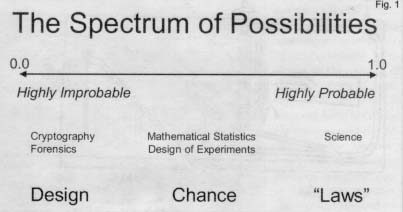
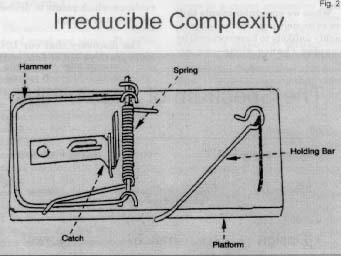
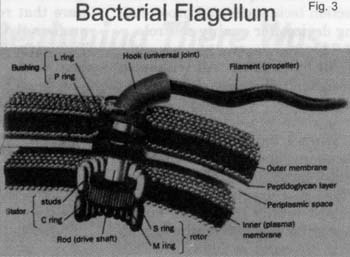
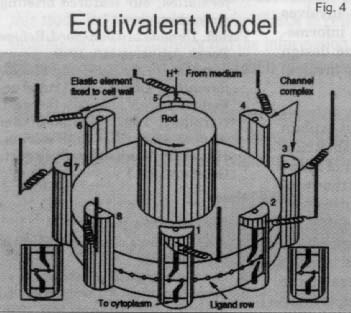
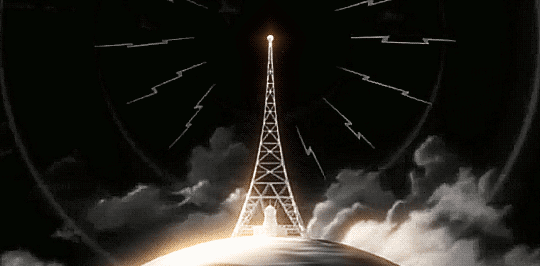

![]()
